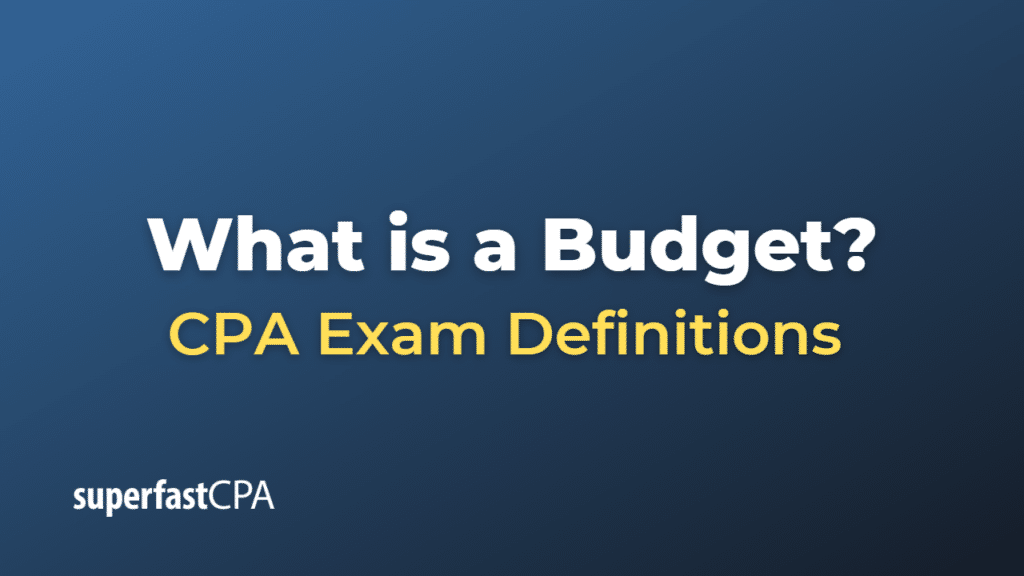Budget
A budget is a financial plan that estimates income and expenses for a specific period, usually a month or a year. It is a crucial tool for individuals, households, businesses, and governments to manage their finances, allocate resources, and achieve financial goals. Budgets help in tracking income and spending, controlling costs, saving money, and ensuring financial stability.
In a budget, expected income (such as salary, investments, or sales revenue) is compared to projected expenses (like rent, utilities, or production costs). The goal is to allocate resources efficiently and make informed decisions to either increase income or reduce expenses, ensuring that spending does not exceed income.
Budgets can be tailored to different levels of detail and complexity depending on the user’s needs. For individuals and households, budgets typically include categories like housing, groceries, transportation, entertainment, and savings. For businesses, budgets may involve various departments, projects, and cost centers, helping the company to achieve its financial targets and strategic objectives.
Regular monitoring and updating of budgets are essential to account for changes in income, expenses, or financial goals, enabling individuals and organizations to stay on track and make necessary adjustments as needed.
Example of a Budget
Let’s consider a simple example of an individual named Alice who wants to create a monthly budget for her personal finances. Here’s a breakdown of her estimated monthly income and expenses:
Income:
- Salary: $4,000
Expenses:
- Rent: $1,200
- Groceries: $400
- Utilities (electricity, water, internet): $150
- Transportation (gas, public transit): $200
- Insurance (health, car, renter’s): $300
- Entertainment (movies, dining out, hobbies): $250
- Savings: $500
First, Alice lists her monthly income, which is her salary of $4,000. Next, she estimates her monthly expenses based on her spending habits and financial commitments. She allocates money for rent, groceries, utilities, transportation, insurance, entertainment, and savings.
Alice’s total expenses are:
$1,200 + $400 + $150 + $200 + $300 + $250 + $500 = $3,000
With her total income of $4,000, Alice has a surplus of:
$4,000 – $3,000 = $1,000
Since Alice has a positive balance of $1,000 after accounting for her expenses, she can consider allocating the surplus to other financial goals, such as paying off debt, increasing her savings, or investing.
By creating a budget, Alice can monitor her spending habits, control her expenses, and ensure she stays on track to achieve her financial goals. If her income or expenses change, she can adjust her budget accordingly and make informed decisions about her finances.












